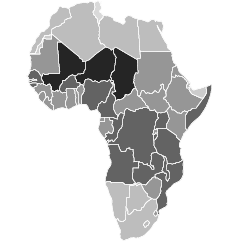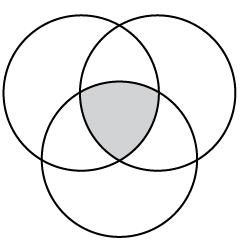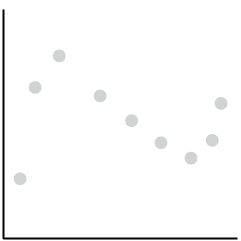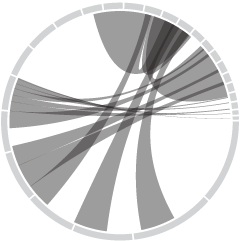In states with stricter gun laws, firearms still find their way in. Based on data from the Bureau of Alcohol, Tobacco, Firearms and Explosives, maps by Gregor Aisch and Josh Keller for the New York Times show where the guns came from in 2014.
The data represents about 50,000 out-of-state guns used in crimes for the year, and of course, this is just a percentage of what actually gets across.

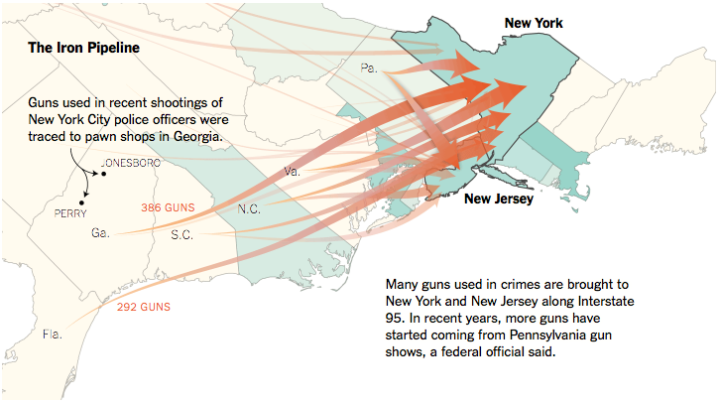
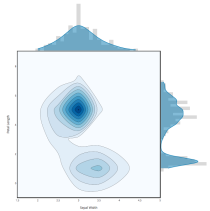 Plotly, a service that lets you make interactive charts online,
Plotly, a service that lets you make interactive charts online, 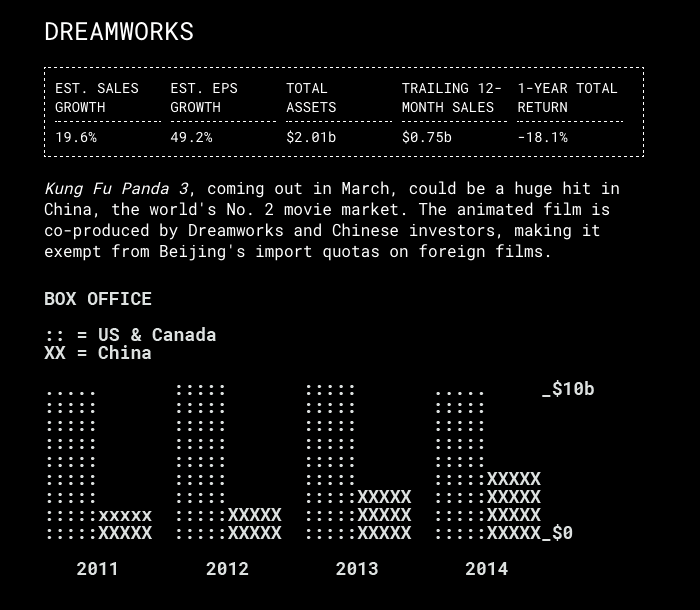
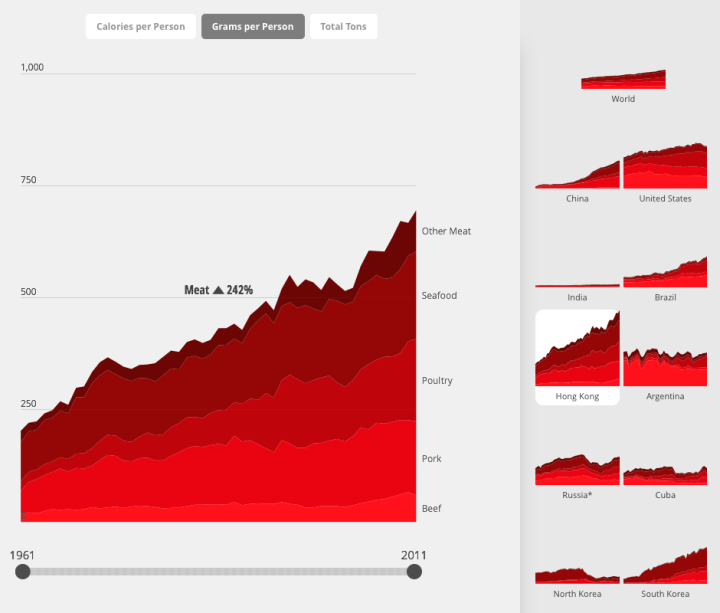
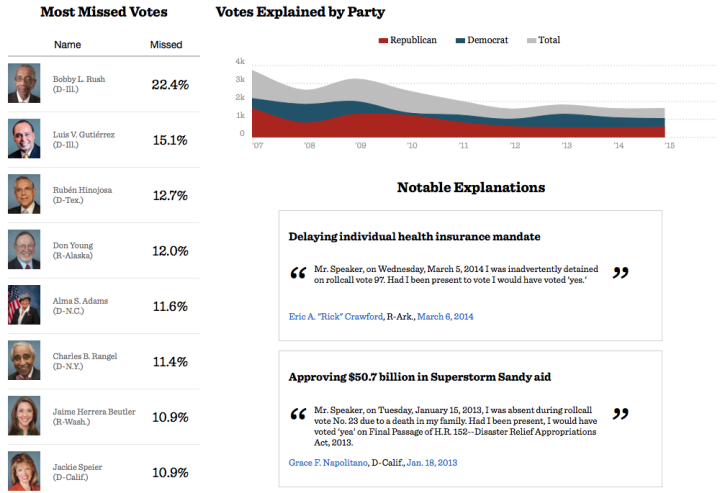


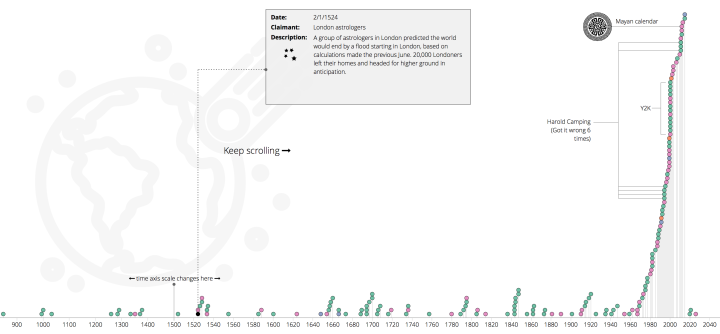
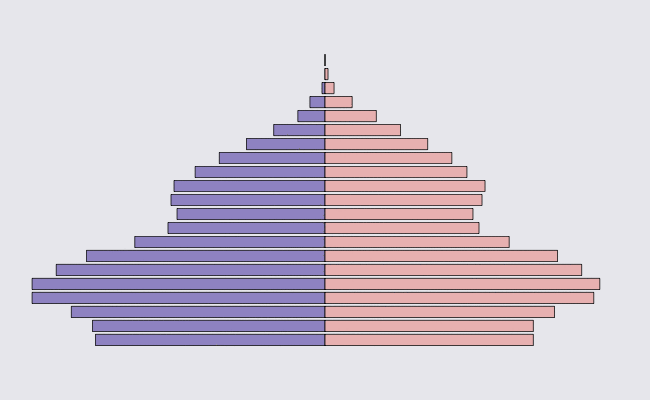
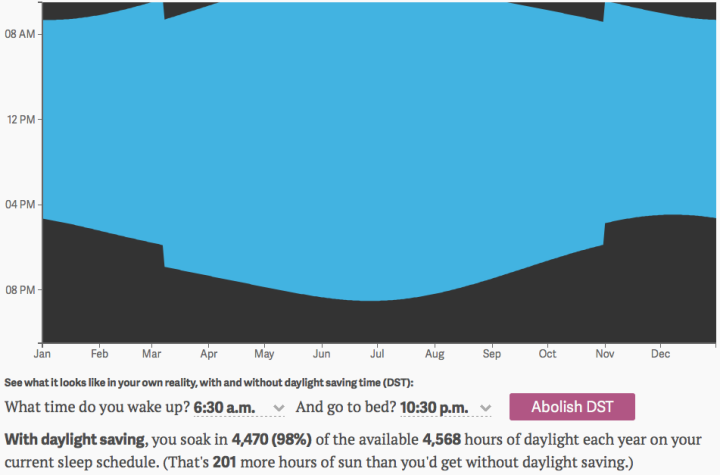
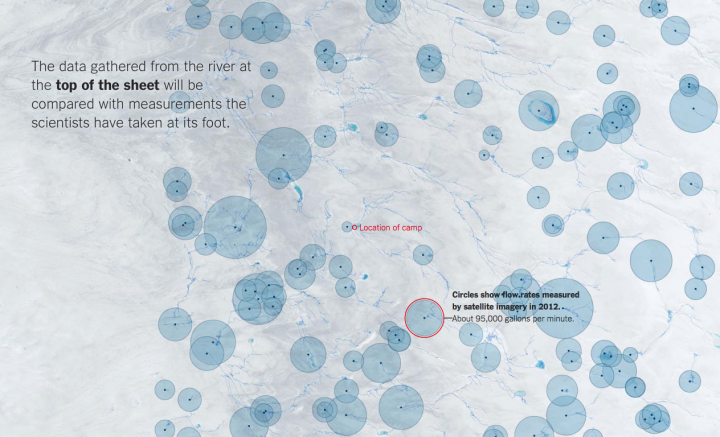
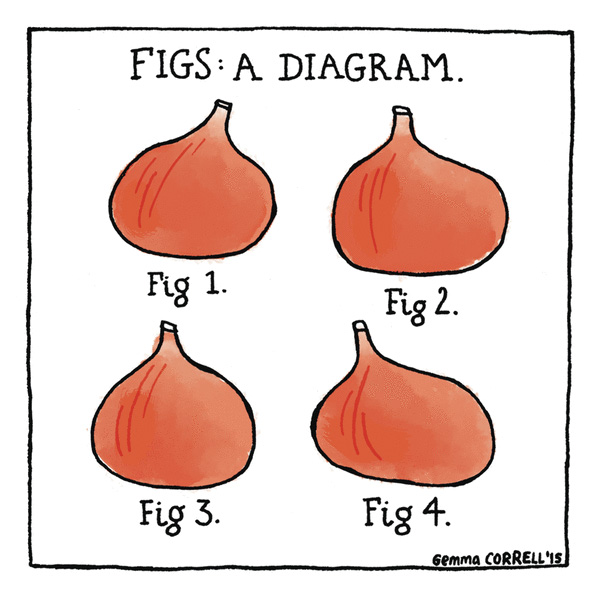
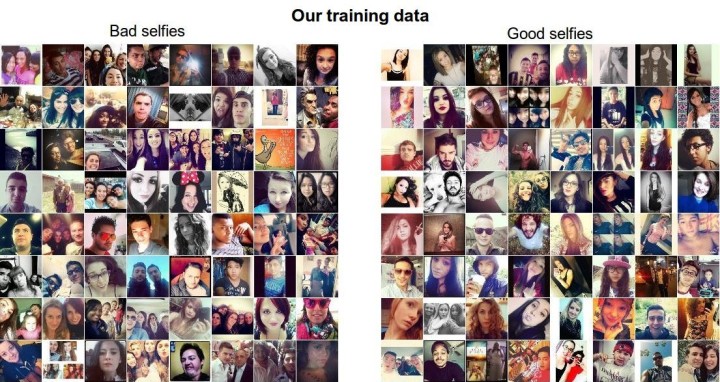
 Visualize This: The FlowingData Guide to Design, Visualization, and Statistics (2nd Edition)
Visualize This: The FlowingData Guide to Design, Visualization, and Statistics (2nd Edition)


